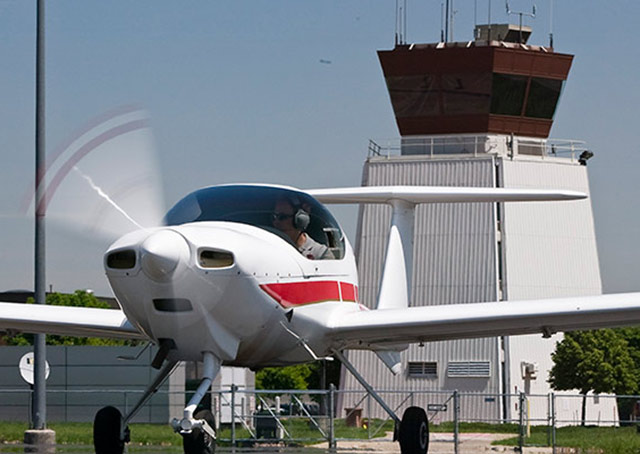
The chairman of the House Transportation and Infrastructure committee announced June 15 that he would seek to separate air traffic control functions from the FAA as part of the ongoing FAA reauthorization process.
In his remarks before the Aero Club of Washington, Rep. Bill Shuster (R-Pa.) proposed creating a not-for-profit, federally chartered corporation to operate and modernize ATC. That corporation, he said, would be governed by a board of system users and would be funded through a user fee system separate from the congressional appropriations cycle.
“We appreciate Chairman Shuster’s efforts to bring needed reforms to the current FAA structure and we look forward to continuing to work with him and the committee. Although we have yet to see details of the proposed legislation, AOPA believes the current method of collecting revenues through a tax on aviation fuel is not broken,” said AOPA Senior Vice President of Government Affairs Jim Coon, reiterating AOPA’s longstanding opposition to user fees for general aviation. “Moreover, we believe any air traffic system must preserve GA access to airports and airspace on a first-come, first-served basis, like we enjoy today.”
Shuster suggested that legislation to create a separate ATC organization as part of a larger FAA reauthorization proposal could be considered on the House floor in July. Before any reauthorization legislation can become law, it must also be approved by the Senate, which has not yet indicated whether it would support creating a separate ATC organization or announced a timeline for considering reauthorization legislation. Current FAA programs expire Sept. 30.
Many in the aviation community agree that the current system is less effective and efficient than it could be, but GA groups and some airlines are concerned about the potential impacts of creating a separate user-fee funded organization to manage air traffic.
“There is no doubt that the FAA has spent billions over the years on efforts to modernize our air traffic control system, and we recognize that change is needed to ensure continued U.S. leadership in aviation,” said Coon. “But we must avoid any unintended consequences for general aviation. We’ve seen issues in other countries where general aviation has been put aside and we can’t allow that to happen in this country.”



